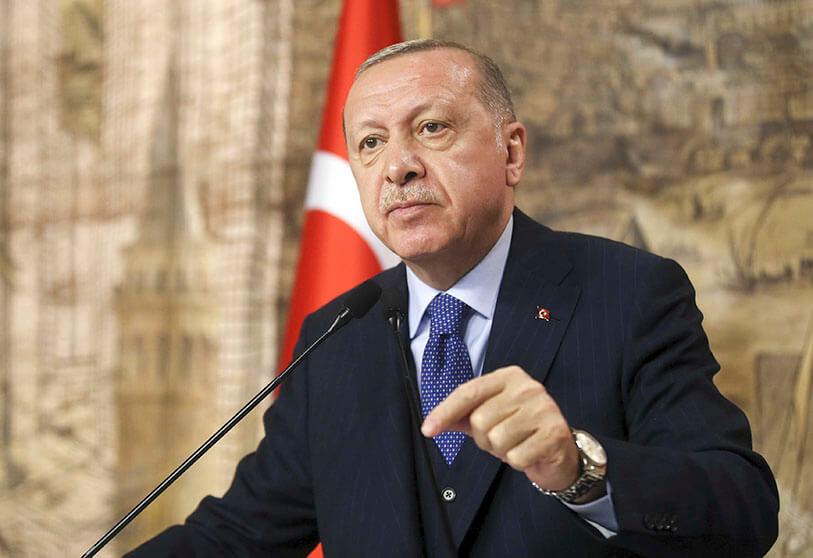Turkish President Recep Tayyip Erdoğan has started to interfere openly in Bulgarian domestic politics, pundits said after he made an unprecedented video address to Bulgaria’s mostly ethnic Turkish Movement of Rights and Freedoms (DPS).
On 12 December, Erdoğan addressed in a short video a party conference of DPS (Renew Europe), which re-elected Mustafa Karadayi to a new leadership term.
DPS has a steady presence in Bulgaria’s political landscape, with 25 MPs in the 240-member National Assembly. Officially, DPS is in opposition, but they have supported the government of Boyko Borissov in decisive moments, in exchange for economic benefits.
“Dear members of the Movement for Rights and Freedoms, dear brothers and sisters, I congratulate you with the most heartfelt feelings of love and longing,” Erdoğan said in the address.
He added: “We see that under the chairmanship of my dear friend Boyko Borissov, Bulgaria is coping with the crisis caused by the pandemic. Based on the understanding that friends in need know each other, Turkey also supports, to the best of its ability, friendly and fraternal peoples. ”
The statement came a day after it became known that Borissov, together with Germany’s Angela Merkel, had been instrumental in blocking efforts to impose sanctions on Turkey at the 10-11 December EU summit.
It is important to note that Erdogan praised Borissov but failed to mention Ahmed Dogan, the historic leader of DPS, who called Erdoğan a “dictator” in the past. Before the 2017 elections, Turkey unsuccessfully tried to create DOST, a second ethnic Turkish party in Bulgaria, in a direct insult to DPS.
Asked by EURACTIV to comment, former Bulgarian foreign minister Ivaylo Kalfin recalled that DPS has had complicated relations with Turkey, especially under Erdoğan.
“Erdoğan’s address to the DPS forum is a landmark. DPS is in opposition, but they have leverage over the government and are obviously using it. The party needs a strong presence in power and the support that comes from Turkey should help them to have a higher election result and stronger tools to negotiate a future coalition,” the former foreign minister said.
Bulgaria is due to hold parliamentary elections in spring.
Political scientist Parvan Simeonov from Gallup Bulgaria agreed that Erdoğan is for the first time trying to position himself as a factor in Bulgarian domestic politics.
“DPS has been an outspoken opponent of Erdoğan for years, and now Erdoğan’s statement has been elevated to the state level. This is big politics”, Simeonov commented.
According to him, by name-checking Borissov at a political forum of DPS, Erdogan is legitimising future political cooperation between DPS and Borissov’s GERB party (EPP-affiliated).
According to him, Erdoğan has so far been able to rely on Borissov in Europe, “so the gesture is domestic”.
Kalfin also believes that Erdoğan’s address should be seen in the context of bilateral relations.
“It’s a fact that Borissov represents Erdoğan in the EU, as Erdoğan said so himself years ago. He said he was glad his friend Borissov was Turkey’s voice in the EU. That’s crystal clear. With his address to DPS, Erdoğan is repeating the same thing to their electorate, “Kalfin commented.
When Erdoğan became president, Kalfin added, he “developed the theory of the influence of the former Ottoman Empire and claimed that all the countries that had been part of it were an area of interest for Turkey. So Erdoğan’s attitude towards Bulgaria continues to reflect the attitude of the former ruler who looks at his territories.

